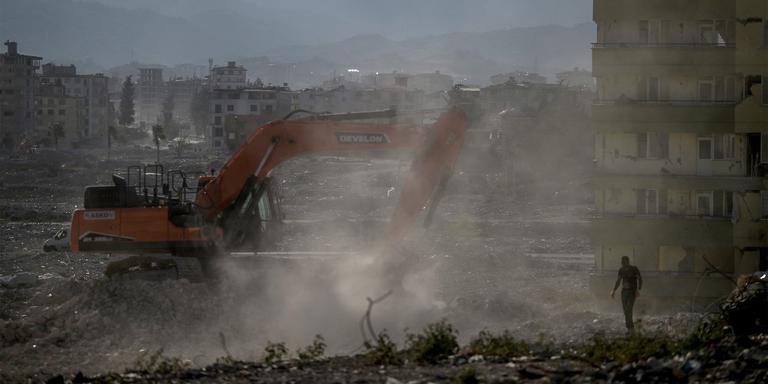


Desolation reigns in Antakya, Turkey, months after earthquake: 'It's chaos, as if the quake had happened yesterday'
FeatureBefore the February 6 disaster, the capital of Hatay province in southern Turkey had a population of 400,000. Today, the city is virtually deserted and resembles a field of ruins.
The city where Mehmet Gül was born 58 years ago, and where he has lived virtually all his life, is now a distant memory. And the neighborhood where he grew up, like all those around it, is a vast field of ruins. From his small, shady courtyard, in front of his devastated house, Antakya reveals a staggering spectacle of chaos and desolation. "More than six months after the earthquake, the situation remains just as disastrous. Worse still, nobody knows where we're going," said Gül. Before the February 6 earthquake and its countless aftershocks, the city had a population of 400,000, rising to over 1.7 million with the surrounding area. The administrative capital of the Hatay region in southern Turkey, the former Antioch, once the world's third-largest city, is now almost deserted − collapsed upon itself, as if shattered.
The air is saturated with noise and dust, the result of the incessant to-and-fro of mobile cranes and trucks loaded to the brim with scrap metal and debris. Here and there, a few people tried to salvage steel rods and cables. A kilogram sells for 6 Turkish liras (€0.20) from the wholesalers who are still around. Almost 92% of the city has yet to be rebuilt. And, according to Mayor Lütfü Savas, 90% of the population has relocated elsewhere.
Behind the tent that has provided shelter for Gül and his family since the earthquake, the roar of excavators and bulldozers has intensified. "You can hear it. They're getting closer, my house will probably be next." A few weeks ago, this retired schoolteacher found a demolition order taped to one of his still-intact windows. Shortly before, two police officers had come to see him. They asked him and his small family if they had any needs. "They came five months after the disaster, exactly 152 days later. Can you imagine? I couldn't tell them anything. I've always believed in the state, but this time, I took it as an insult."
Gül admitted that help came quickly in terms of food and clothing, and tents were provided. Electricity has been restored and water was reconnected in April, even if it's no longer as drinkable as before. His wife Emel, also retired, added that the municipality of Istanbul has provided significant help by sending containers and staff. "But everything else is in chaos, as if the earthquake had happened yesterday. Everything is terribly slow and completely opaque."
'No roof, no future'
As the owner of his land, Gül requested 500,000 Turkish liras (€17,000) in state aid to rebuild his property. He has yet to receive a reply. What worries him most is the reconstruction cost, estimated at at least 1.5 million liras. "With my modest pension of 13,500 liras, I know we won't make it. Inflation, here as elsewhere, has gone mad, and labor costs have increased five or sixfold. So, I'm waiting without knowing exactly what's going to happen," he said. In a more weary tone, he added: "I may have survived the earthquake, but I can't imagine continuing to live like this, without a roof over my head or a future."
You have 67.9% of this article left to read. The rest is for subscribers only.
